In 2019, the Pulwama attack occurred in Lethpora, Pulwama district, Jammu and Kashmir, India. This tragic incident resulted in the deaths of 40 Central Reserve Police Force personnel and a suicide bomber, with an additional 35 individuals injured. Discover more about the implications and aftermath of this pivotal event in Indian security history.
On February 14
7
Important Days
67
Important Events
309
Births and Deaths
recorded.
Holidays and Occasions
Events
Births and Deaths

Celebrating Statehood Day: Arizona's Journey to Statehood
Every year on February 14th, Arizona commemorates its admission to the United States as the 48th state. Known as Statehood Day, this event marks a significant milestone in the state's rich history and serves as a reminder of its journey from a sparsely populated territory to becoming a vibrant state with diverse cultures...

Statehood Day in Oregon: A Celebration of Heritage and Community
Statehood Day in Oregon is a significant celebration that marks the anniversary of the day the territory was admitted as the 33rd state of the United States. Officially recognized on February 14, 1859, this day honors Oregon's rich heritage, culture, and the numerous challenges faced by its pioneers...

The Presentation of Jesus at the Temple: Significance in the Armenian Apostolic Church
The Presentation of Jesus at the Temple, also known as the Feast of the Encounter, holds significant theological and cultural importance in the Armenian Apostolic Church. This event, which is celebrated on February 14th (or January 28th in the Julian calendar), marks the day when Mary and Joseph brought the infant Jesus to the Temple in Jerusalem to present Him to the Lord, in accordance with Jewish law...

Parents' Worship Day in India: A Celebration of Love and Respect
In a country as diverse as India, cultural traditions hold significant importance, and one of the most heartfelt celebrations is the Parents' Worship Day. Observed in various parts of India, this day is a unique occasion for children to express their love, respect, and gratitude towards their parents...

Cyril and Methodius: The Patron Saints of Europe
Cyril and Methodius, two brothers from Thessalonica, are celebrated in the Christian tradition as the patron saints of Europe. Their legacy is deeply rooted in the spread of Christianity and the development of Slavic culture...

Exploring the Rich Tradition of Manchan: History, Techniques, and Modern Relevance
Manchan is a traditional form of art that has been cherished for generations, showcasing the deep cultural roots and the craftsmanship of a particular region. In this article, we will delve into the essence of Manchan, exploring its history, significance, and the techniques involved in its creation...

The History and Significance of Valentine's Day
Valentine's Day, celebrated annually on February 14th, is a day dedicated to love and affection between intimate partners. While the modern celebration often involves romantic gestures and gifts, the history of Valentine's Day is rich with tradition and folklore...
In 2018, the tragic shooting at Marjory Stoneman Douglas High School in Parkland, Florida, became one of the deadliest school massacres in U.S. history, resulting in 17 fatalities and 17 injuries. This heartbreaking event has since sparked nationwide discussions on gun control and school safety.
In 2018, Jacob Zuma announced his resignation as President of South Africa, marking a significant turning point in the country's political landscape. Discover the implications of this pivotal event and its impact on South Africa's future.
In 2011, the Bahraini uprising ignited during the Arab Spring, marked by a significant 'Day of Rage' that called for political reform and social justice.
Northern Illinois University shooting, 2008: In a tragic event at Northern Illinois University in DeKalb County, Illinois, a gunman opened fire in a lecture hall, leading to six deaths, including the shooter, and injuring 21 others. This unfortunate incident remains a significant moment in discussions about campus safety and gun violence.
In 2005, a group of college students launched YouTube, which quickly evolved into the world's largest video-sharing platform and a leading source of viral content. Discover how YouTube changed the way we consume and share videos globally.
In 2005, a tragic series of bombings attributed to suspected al-Qaeda-linked militants resulted in the deaths of seven individuals and injuries to 151 more across major Philippine cities, including Makati, Davao City, and General Santos. This event highlights the ongoing security challenges faced by the Philippines.
In 2005, a tragic bomb explosion in Beirut claimed the lives of 23 individuals, including former Prime Minister Rafic Hariri. The devastating detonation, equivalent to approximately 1,000 kg of TNT, occurred as Hariri's motorcade was navigating through the city, marking a pivotal moment in Lebanon's history.
In 2004, a tragic disaster struck the Transvaal Water Park in a Moscow suburb when its roof collapsed, resulting in the deaths of over 28 individuals and injuring 193 others. This devastating incident highlights the importance of safety standards in public recreational facilities.
In 2003, during the Iraq disarmament crisis, UNMOVIC Executive Chairman Hans Blix delivered a pivotal report to the United Nations Security Council, confirming that disarmament inspectors had found no evidence of weapons of mass destruction in Ba'athist Iraq. This crucial finding played a significant role in the global dialogue surrounding Iraq's military capabilities and compliance with international regulations.
In 2000, the NEAR Shoemaker spacecraft made history by becoming the first spacecraft to successfully enter orbit around asteroid 433 Eros. This groundbreaking achievement marked a significant milestone in space exploration and our understanding of asteroids.
In 1998, a catastrophic collision occurred in Yaoundé, Cameroon, when an oil tanker train crashed into a freight train, resulting in a significant fuel oil spill. Tragically, one individual attempting to scavenge the oil ignited a massive explosion, claiming the lives of 120 people. This devastating incident highlights the dangers associated with oil transportation and railway safety.
In 1990, the Voyager 1 spacecraft captured the iconic photograph of Earth known as the Pale Blue Dot. This historic image poignantly highlights our planet's fragility and isolation in the vastness of space, making it a symbol of introspection and environmental awareness.
In 1990, Indian Airlines Flight 605 tragically crashed in Bangalore, India, resulting in the loss of ninety-two lives. This devastating incident remains a significant event in aviation history.
In 1989, Iranian leader Ruhollah Khomeini issued a controversial fatwa calling for the assassination of Salman Rushdie, the author of "The Satanic Verses." This decree sparked global protests and intensified the debate on freedom of speech and censorship, highlighting the tensions between literature and religious beliefs.
In 1989, Union Carbide reached a landmark agreement to pay $470 million to the Indian government as compensation for the devastating Bhopal disaster of 1984, which resulted in significant environmental and social damages. Discover more about the impact of this catastrophic event and its long-lasting effects.
In 1983, the United American Bank in Knoxville, Tennessee, faced a dramatic collapse. The bank's president, Jake Butcher, was later found guilty of fraud, marking a significant event in the history of banking failures.
In 1979, Setami Milli militants kidnapped Adolph Dubs, the American ambassador to Afghanistan, in Kabul. Tragically, he was killed during a firefight between his captors and police. This incident marked a significant moment in U.S.-Afghanistan relations, highlighting the escalating violence during this tumultuous period.
In 1966, Australia transitioned to decimal currency, revolutionizing its financial system and enhancing economic transactions. Discover the impact of this pivotal monetary reform on Australia's economy.
In 1961, the University of California made a groundbreaking discovery by synthesizing Element 103, Lawrencium. This significant achievement in the field of chemistry marked an important milestone in the identification and synthesis of new chemical elements.
In 1954, during the First Indochina War, a small French garrison at Đắk Đoa was overwhelmed by the Viet Minh following a week-long siege, marking a significant turning point in the conflict.
In 1949, the Asbestos Strike ignites in Canada, signaling the onset of the Quiet Revolution in Quebec. This pivotal event not only reshapes labor relations but also serves as a catalyst for social and political change in the province, marking a significant moment in Canadian history. Discover the impact of the Asbestos Strike and its role in transforming Quebec's landscape.
In 1949, the Knesset, Israel's parliament, held its inaugural session, marking a significant milestone in the nation's democratic governance. Explore the historic beginnings of Israel's legislative authority and its impact on the country's political landscape.
In 1947, Hungary enacted a groundbreaking law that abolished all noble ranks and related titles, transforming the social hierarchy. This significant legislative change marked a pivotal moment in the country's history.
In 1946, the Bank of England was nationalized, marking a significant shift in the UK's financial landscape. This pivotal event transformed how banking institutions operated, positioning the Bank of England as a vital state-owned entity responsible for monetary policy and economic stability.
In 1945, President Franklin D. Roosevelt and King Ibn Saud of Saudi Arabia officially inaugurated U.S.-Saudi diplomatic relations during their historic meeting aboard the USS Quincy. This pivotal moment marked the beginning of a long-standing alliance between the United States and Saudi Arabia.
1945 - World War II: Mostar, a historic city in Bosnia and Herzegovina, is liberated by Yugoslav partisans, marking a significant event in the region's wartime history. Discover the pivotal role of Mostar in this critical moment of liberation during the Second World War.
In 1945, during World War II, a navigational error resulted in the incorrect bombing of Prague, Czechoslovakia, by a squadron of B-17s from the United States Army Air Forces. This incident occurred while the squadron was providing support for the Soviet Red Army's Vistula–Oder Offensive. Discover the impact of this historical event on the war and its implications for air operations.
1945 – World War II: On the initial day of the devastating bombing campaign, the British Royal Air Force and the United States Army Air Forces launch their fire-bombing operation on Dresden, marking a significant event in wartime history.
In a pivotal event of World War II on February 14, 1944, a Royal Navy submarine successfully sank a German-controlled Italian Regia Marina submarine in the strategic Strait of Malacca. This significant military action underscores the intense naval warfare of the era.
1943 – During World War II, the Tunisia Campaign sees General Hans-Jürgen von Arnim's Fifth Panzer Army initiate a counter-attack on Allied forces in Tunisia. Discover the significant military actions that shaped this pivotal moment in history.
In 1943, Rostov-on-Don, Russia, was liberated during World War II, marking a significant turning point in the Eastern Front. This pivotal event contributed to the Allied forces' momentum and reshaped the course of the war.
1942 – World War II: The Battle of Pasir Panjang plays a crucial role in the fall of Singapore, marking a significant turning point in the Pacific theatre. Discover the impact of this pivotal battle on the outcome of the war.
1939 – World War II: The German battleship Bismarck is launched, marking a significant event in naval history. Discover the impact of the Bismarck on maritime warfare during World War II.
In 1929, the infamous Saint Valentine's Day Massacre rocked Chicago as seven individuals, including six rival gangsters of Al Capone’s notorious organization, were brutally murdered. This shocking incident remains one of the most notorious events in organized crime history.
In 1924, The Computing-Tabulating-Recording Company rebranded itself as International Business Machines Corporation (IBM), marking a pivotal moment in the evolution of technology and business solutions. Discover how this name change set the stage for IBM's innovation in the computing industry.
Founded in Chicago in 1920, the League of Women Voters emerged as a pivotal organization advocating for women's rights and civic engagement.
The Polish-Soviet War of 1919 ignites, marking a significant conflict in Eastern European history. Explore the causes and impacts of this pivotal war that shaped Poland's national identity and its relations with Soviet Russia.
In 1918, Russia transitioned to the Gregorian calendar, marking a significant shift in its historical timeline and alignment with much of the world. Discover the impact of this change on Russian culture and society.
In 1912, the U.S. Navy launched its inaugural class of diesel-powered submarines, marking a significant advancement in naval technology. Discover the evolution of submarine warfare and the impact of these innovative vessels on modern military strategies.
In 1912, Arizona became the 48th and final contiguous state to join the United States, marking a significant milestone in American history.
In 1903, the United States launched the Department of Commerce and Labor, which was later divided into two separate entities: the Department of Commerce and the Department of Labor. This significant establishment marked a pivotal moment in U.S. governmental structure, focusing on economic development and labor issues.
In 1900, the British Army launches the Battle of the Tugela Heights to break the Siege of Ladysmith. This pivotal military engagement marked a significant turning point in the Second Boer War, showcasing the strategic efforts of British forces to regain control. Learn more about this historic battle and its impact on the war.
In 1899, the U.S. Congress officially approved voting machines for use in federal elections, marking a significant advancement in the electoral process and enhancing voting efficiency across the nation.
In 1879, the War of the Pacific ignited when the Chilean Army seized the Bolivian port city of Antofagasta, marking a pivotal moment in Latin American history. Discover the events that led to this significant conflict and its lasting impact on regional dynamics.
In 1876, Alexander Graham Bell and Elisha Gray both submitted patents for the telephone, marking a pivotal moment in communication history. Discover the role of these inventors in revolutionizing technology.
In 1859, Oregon became the 33rd state admitted to the United States, marking a significant milestone in American history. Discover the rich cultural and geographical heritage of Oregon as it joined the Union.
In 1855, Texas made history by connecting to the rest of the United States through telegraph. The pivotal link between New Orleans and Marshall, Texas, revolutionized communication and marked a significant advancement in transportation technology. Explore how this achievement transformed Texas and the nation's connectivity in the 19th century.
In 1852, Great Ormond Street Hospital for Sick Children was established in London, becoming the first hospital in England to offer dedicated in-patient beds specifically for children. This pioneering institution revolutionized pediatric care and continues to be a leader in children's healthcare today.
In 1849, James Knox Polk made history as the first sitting President of the United States to have his photograph captured in New York City. This landmark event marked a significant moment in the intersection of politics and photography.
In 1835, the original Quorum of the Twelve Apostles was established in Kirtland, Ohio, marking a significant milestone in the Latter Day Saint movement's history. This pivotal event shaped the leadership and growth of the church, influencing its future developments and teachings.
In 1831, Ras Marye of Yejju leads a decisive campaign into Tigray, securing victory in the Battle of Debre Abbay by defeating and killing Dejazmach Sabagadis. This historical battle marked a significant turning point in the region's power dynamics.
In 1804, Karađorđe orchestrated the First Serbian Uprising against the Ottoman Empire, marking a pivotal moment in Serbian history and the fight for independence. Discover the significance of this monumental event and its impact on the struggle for freedom.
Discover the pivotal 1797 Battle of Cape St. Vincent during the French Revolutionary Wars, where Admiral John Jervis (later the 1st Earl of St. Vincent) and Vice-Admiral Horatio Nelson (later the 1st Viscount Nelson) command the British Royal Navy to a decisive victory against a Spanish fleet near Gibraltar. Explore the strategies and significance of this historic naval conflict.
In 1779, British explorer James Cook was tragically killed by Native Hawaiians in Kealakekua, located on the Island of Hawaii. This significant historical event highlights the complex interactions between European explorers and indigenous populations in the Pacific region.
In 1779, during the American Revolutionary War, the pivotal Battle of Kettle Creek took place in Georgia, marking a significant moment in the conflict. Discover the historical importance and impact of this crucial battle in shaping the course of American history.
In 1778, the United States flag received its first official recognition from a foreign naval vessel, marking a significant moment in U.S. maritime history. French Admiral Toussaint-Guillaume Picquet de la Motte honored the USS Ranger, led by the legendary Captain John Paul Jones, with a prestigious nine-gun salute. This historic event symbolizes the alliance between the United States and France during the American Revolutionary War.
In 1655, the Mapuche people in Chile initiated a series of coordinated attacks against Spanish forces, marking the beginning of the significant Mapuche Uprising of 1655. This pivotal resistance effort played a crucial role in the struggle for Mapuche autonomy and shaped the history of Chilean indigenous resistance.
1613 – Celebrate the historic wedding of Princess Elizabeth and Frederick V of the Palatinate, held at the iconic Whitehall Palace in London. Discover the rich history and significance of this royal union.
In 1556, Akbar ascended to the throne, marking the beginning of his reign as the illustrious ruler of the Mughal Empire. Discover the significance of Akbar's coronation and its impact on the rich history of Mughal leadership.
In 1556, Archbishop of Canterbury Thomas Cranmer was publicly defrocked at Christ Church Cathedral after being declared a heretic and laicized by Pope Paul IV on December 4, 1555. This significant event marked a pivotal moment in the history of the Church of England.
In 1530, Spanish conquistadors under the leadership of Nuño de Guzmán overthrew and executed Tangaxuan II, marking the end of the Tarascan state's independence in modern-day central Mexico. This pivotal event reshaped the region's power dynamics.
In 1349, a tragic event unfolded in Strasbourg as several hundred Jews were tragically burned alive by violent mobs. The remaining Jewish population faced forced expulsion, marking a dark chapter in history. This incident highlights the persecution and violence faced by Jewish communities during this period.
Explore the tumultuous 1130 papal election, a pivotal moment that reveals deep divisions within the College of Cardinals. Understand how this historic event shaped the future of the papacy and the Church's governance.
In 1014, Pope Benedict VIII crowned Henry of Bavaria as the Holy Roman Emperor, solidifying his reign over Germany and Italy. This significant event marked a pivotal moment in medieval history and the relationship between the papacy and the empire.
In 842, Charles the Bald and Louis the German pledge the historic Oaths of Strasbourg, marking a significant moment in medieval history. This event, conducted in both French and German languages, symbolizes the early roots of regional identity and political alliances in Europe. Discover more about this landmark occurrence that shaped the future of France and Germany.
In 748, the Abbasid Revolution gained momentum as the Hashimi rebels, led by Abu Muslim Khorasani, successfully seized Merv, the capital of the Umayyad province of Khorasan. This pivotal event marked a significant consolidation of the Abbasid revolt, paving the way for transformative changes in Islamic history. Discover the key moments and implications of this uprising.
Births

2000 – Gabriel Moreno, Venezuelan baseball player

1999 – Tyler Adams, American soccer player

1997 – Breel Embolo, Swiss footballer

1997 – Jaehyun, South Korean singer and actor

1996 – Lucas Hernandez, French footballer

1996 – Nikolaj Ehlers, Danish ice hockey player

1993 – Alberto Rosende, American actor and singer

1993 – Jadeveon Clowney, American football player

1992 – Petr Mrázek, Czech ice hockey player

1992 – Freddie Highmore, English actor

1992 – Christian Eriksen, Danish footballer

1991 – Daniela Mona Lambin, Estonian footballer

1990 – Sefa Yılmaz, German-Turkish footballer

1990 – Bogdan Kiselevich, Russian ice hockey player

1990 – Brett Dier, Canadian actor

1990 – Chris Babb, American basketball player

1989 – Kristian Thomas, English gymnast

1989 – Jurij Tepeš, Slovenian ski jumper

1989 – Brandon Sutter, Canadian ice hockey player

1989 – Derek Norris, American baseball player
Deaths

2021 – William Meninger, American Trappist monk and a principal developer of Centering Prayer (b. 1932)
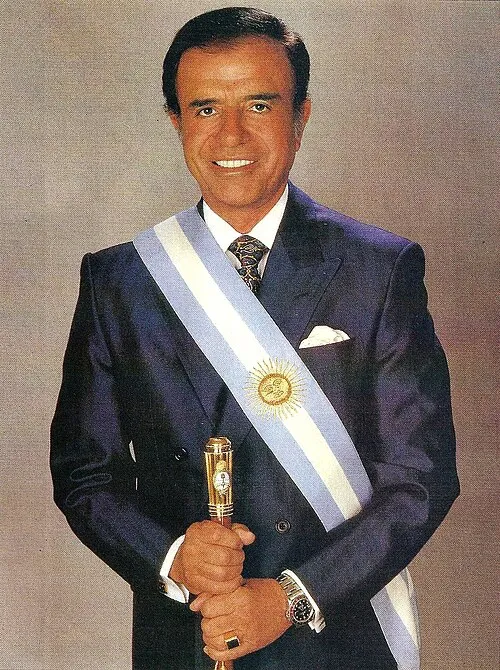
2021 – Carlos Menem, Argentine former president, lawyer, and statesman (b. 1930)
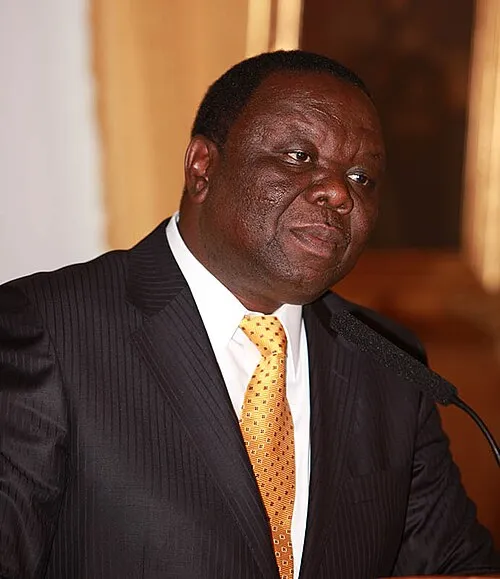
2018 – Morgan Tsvangirai, 2nd Prime Minister of Zimbabwe (b. 1952)
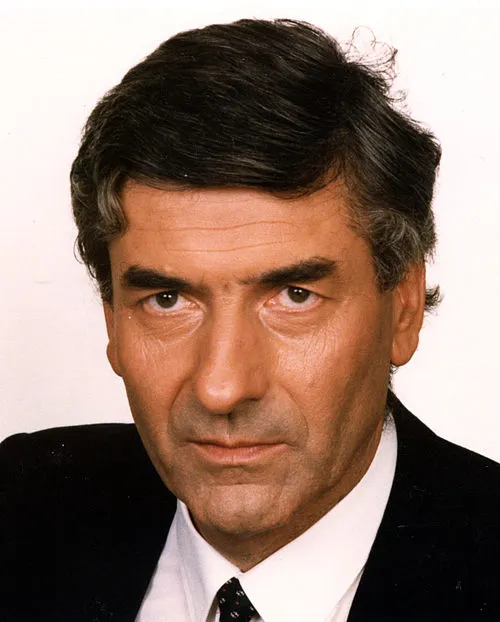
2018 – Ruud Lubbers, Dutch politician and diplomat, Prime Minister and United Nations High Commissioner for Refugees (b. 1939)

2016 – Steven Stucky, American composer and academic (b. 1949)

2016 – Eric Lubbock, 4th Baron Avebury, English lieutenant, engineer, and politician (b. 1928)

2015 – Franjo Mihalić, Croatian-Serbian runner and coach (b. 1920)
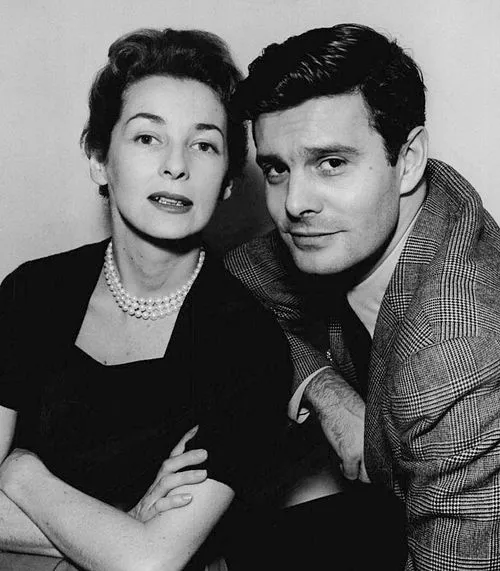
2015 – Louis Jourdan, French-American actor and singer (b. 1921)

2014 – Mike Stepovich, American lawyer and politician, Governor of Alaska Territory (b. 1919)

2014 – Chris Pearson, Canadian lawyer and politician, 1st Premier of Yukon (b. 1931)

2014 – Tom Finney, English footballer (b. 1922)
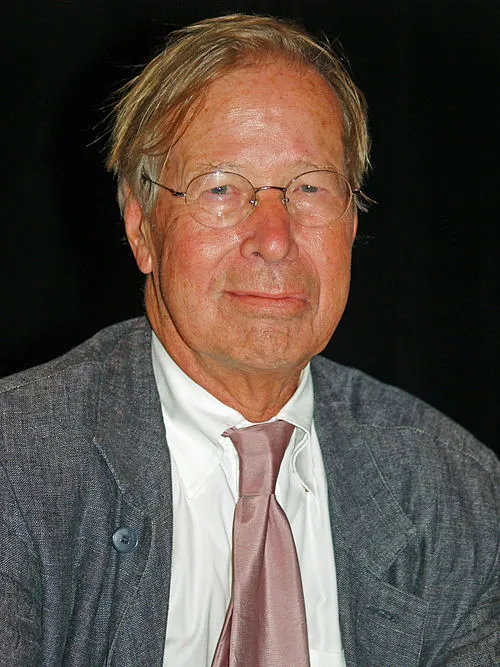
2013 – Ronald Dworkin, American philosopher and scholar (b. 1931)

2013 – Glenn Boyer, American historian and author (b. 1924)

2012 – Péter Rusorán, Hungarian swimmer, water polo player, and coach (b. 1940)

2012 – Dory Previn, American singer-songwriter (b. 1925)

2012 – Tonmi Lillman, Finnish drummer and producer (b. 1973)

2012 – Mike Bernardo, South African boxer and martial artist (b. 1969)

2011 – George Shearing, English-American pianist and composer (b. 1919)

2010 – Linnart Mäll, Estonian historian, orientalist, and translator (b. 1938)

2010 – Dick Francis, Welsh jockey and author (b. 1920)
